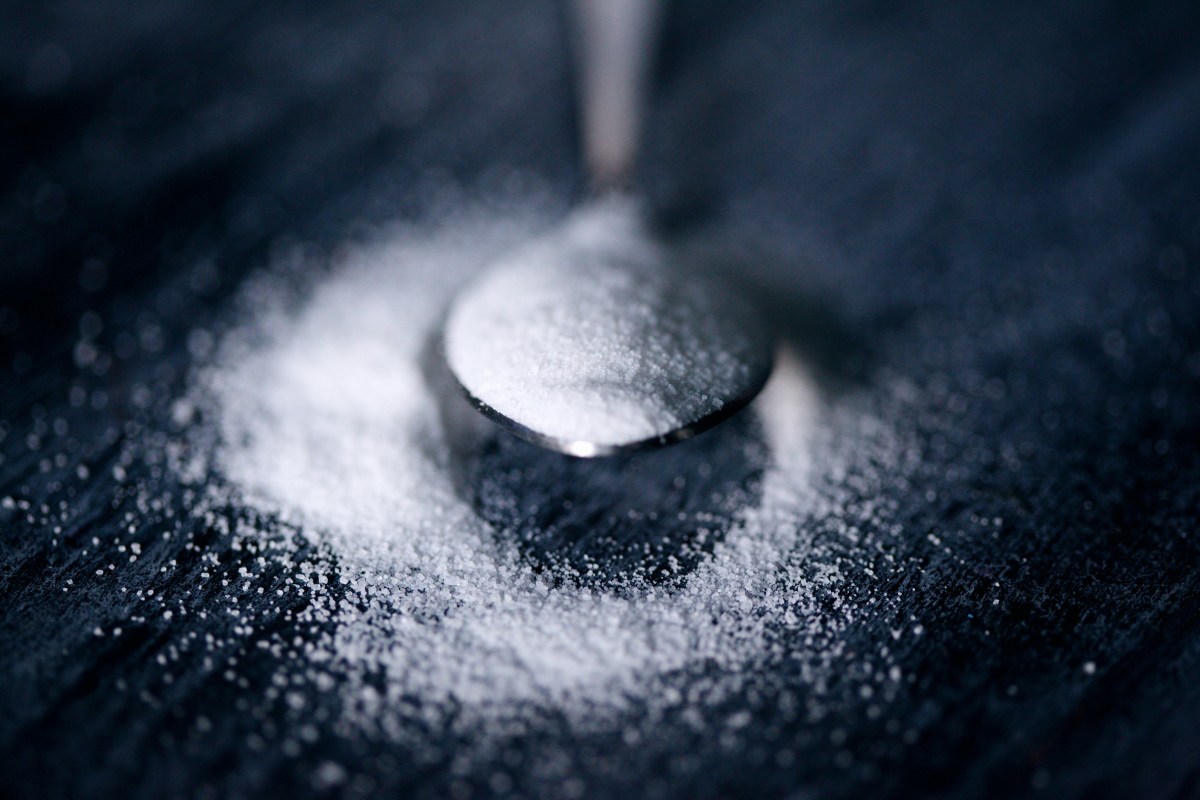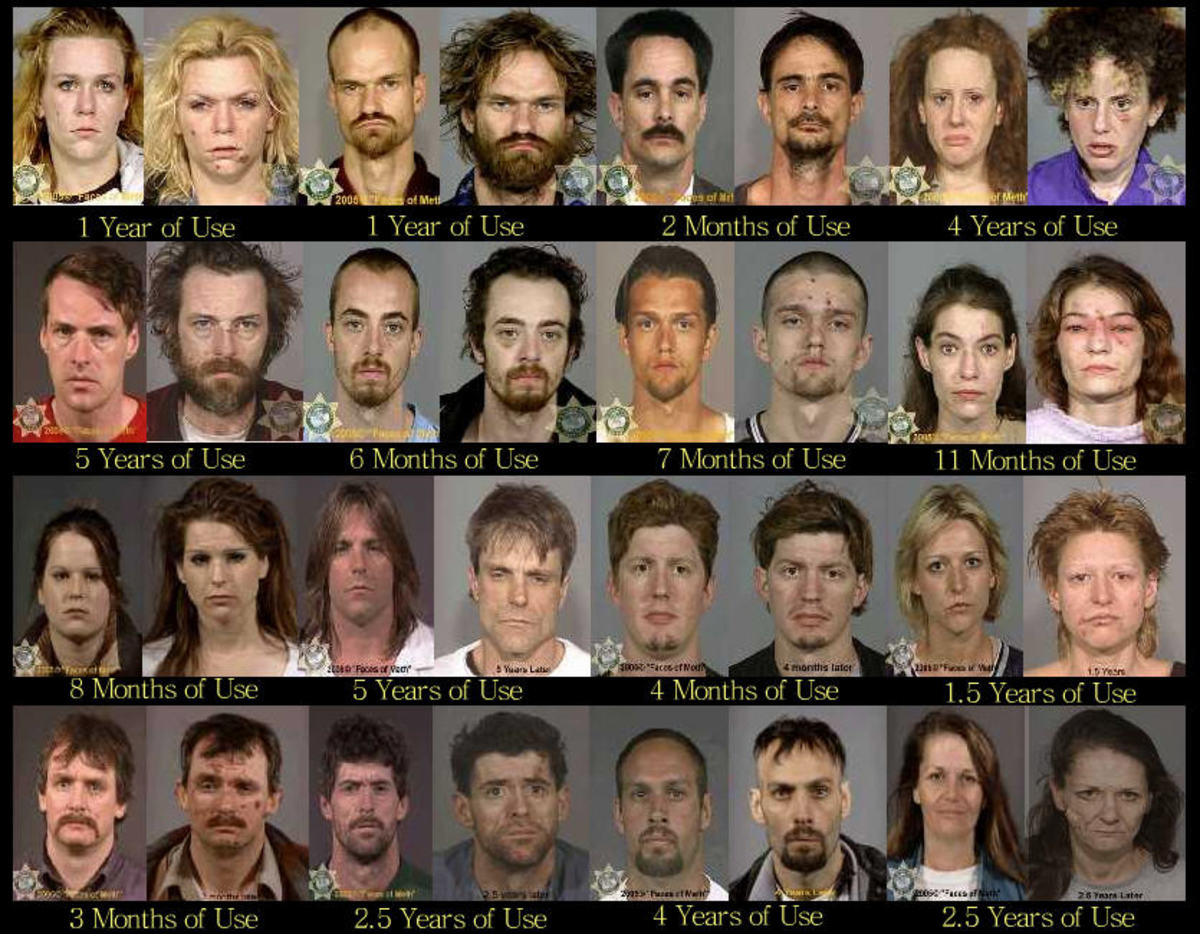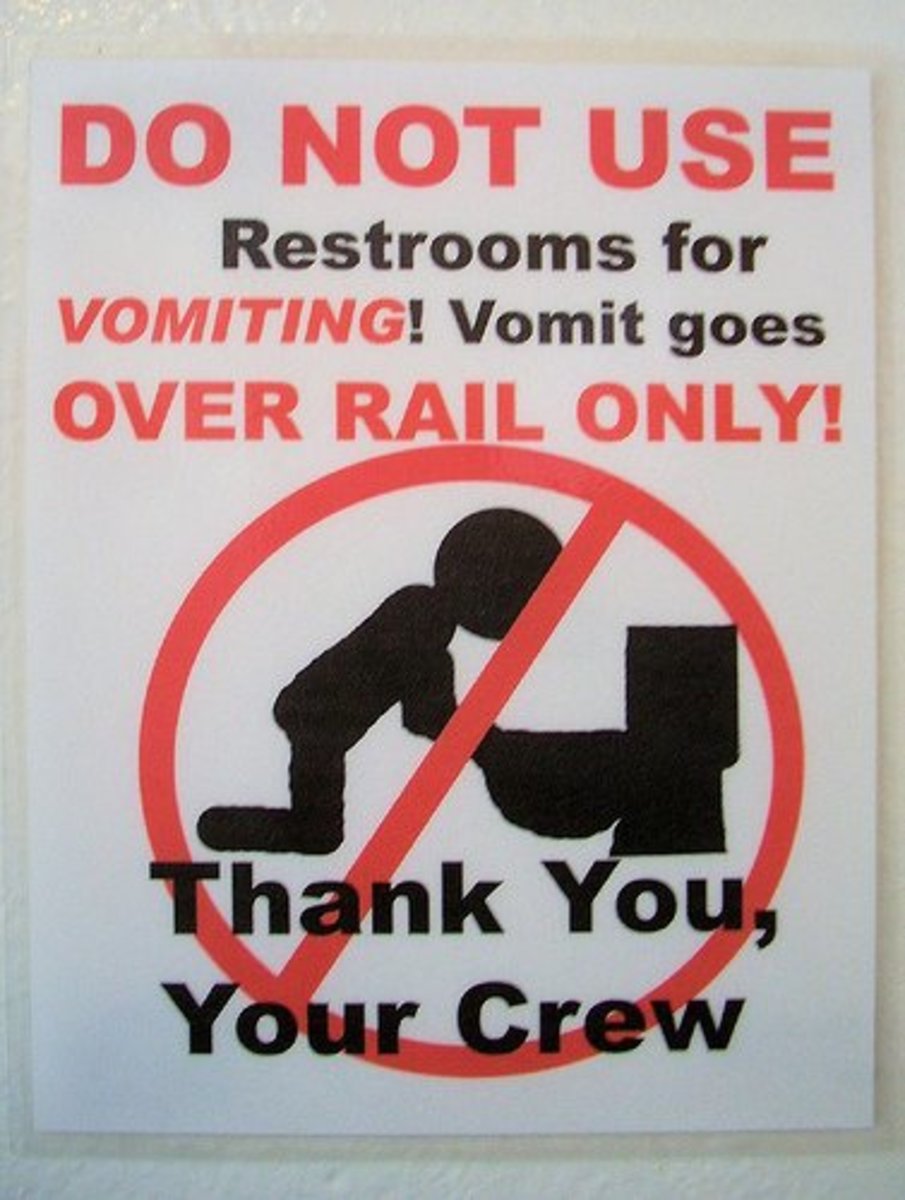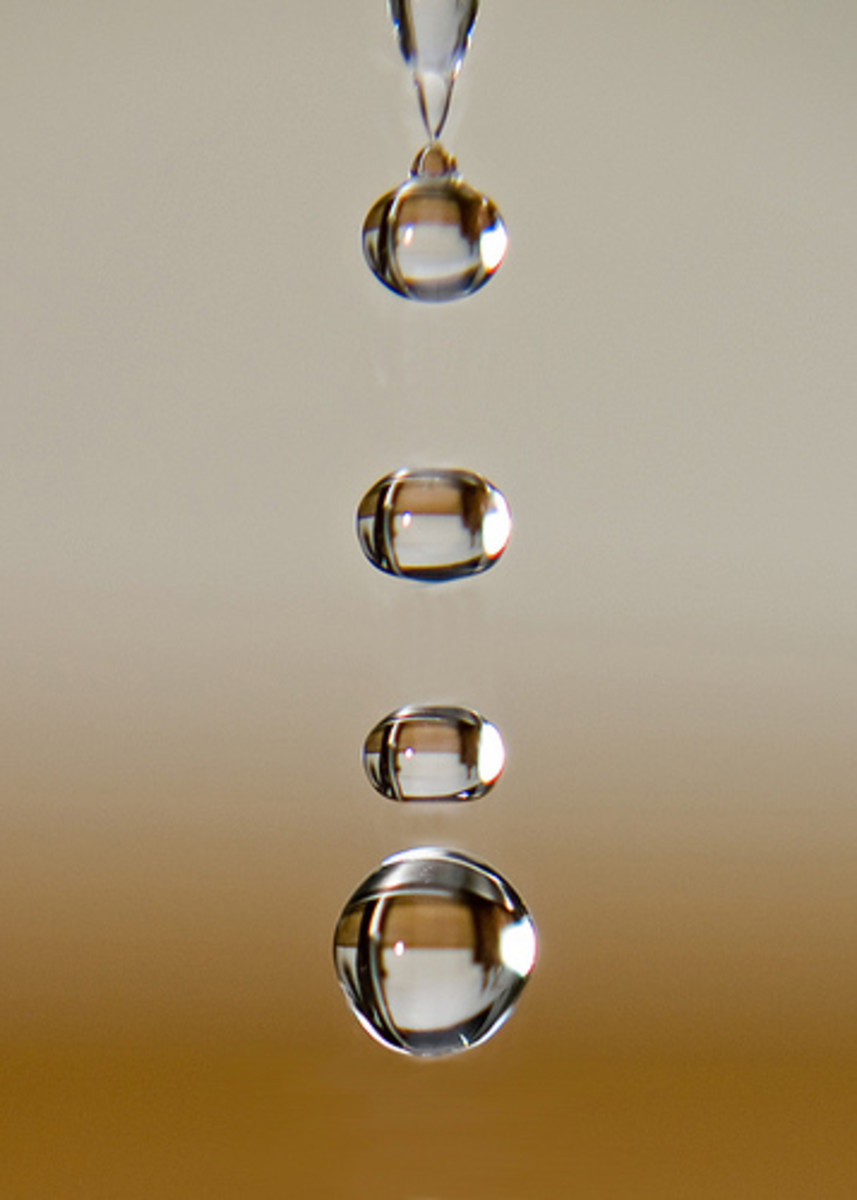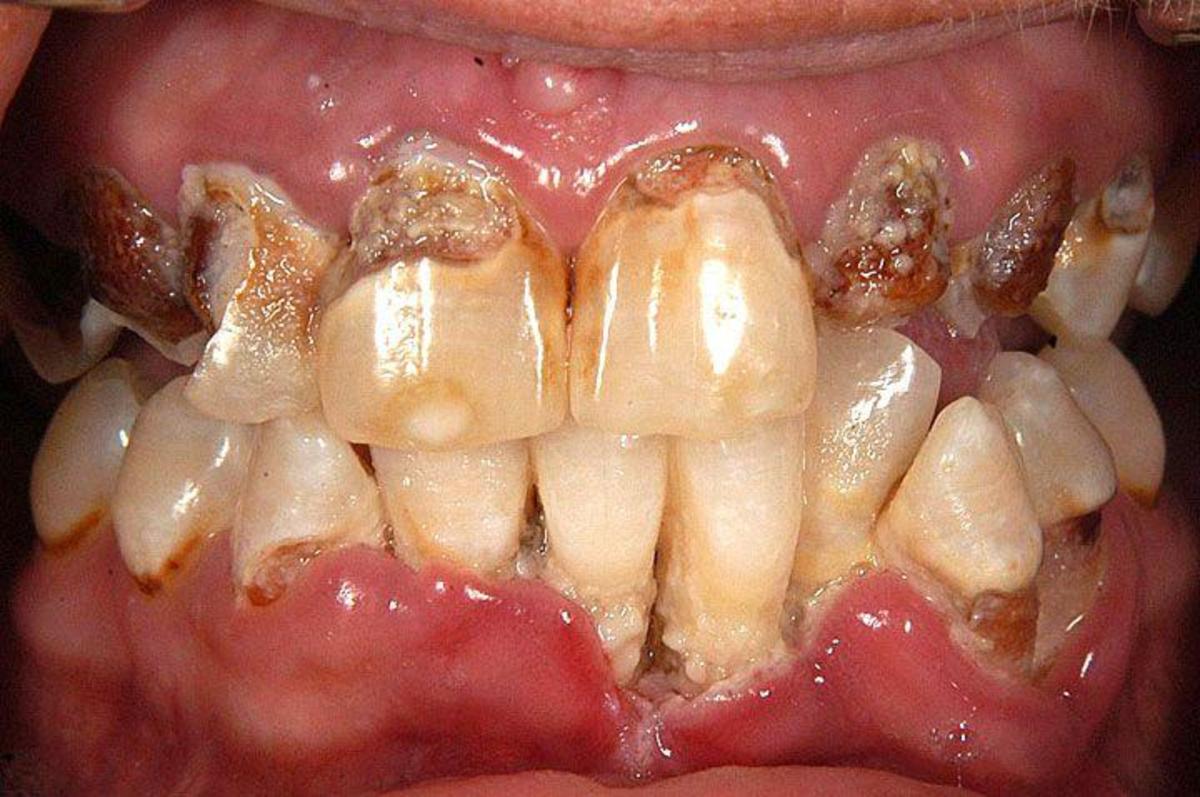- HubPages»
- Health»
- Mental Health»
- Addiction
What It Means to Have Tough Love

For Someone Who Has an Addicted Family Member Tough Love is Tough
Tough love—two words that are as much a part of the rehabilitation process of drug addicts and substance abusers as heat is to fire. Tough love sounds tough, but it is very difficult to have tough love with respect to a family member or a close friend; it is even more difficult to understand what it means to have tough love. Everyone stresses how important it is to have tough love with someone who has an addiction or substance abuse issue, but when asked to explain tough love or how to apply it, very few people can give you a straight forward answer.
I was prompted by a plea for help from a reader in Sydney, Australia who responded in a personal letter to one of my articles featured on Hub Pages, “What to Say to a Recovering Addict.” The letter was somewhat disturbing to me as the reader explained how after reading many articles written by people who claimed to understand the plight of drug addicts, she recognized that they were all knowledgeable concerning drugs, but she was convinced after asking the question, “What does it mean to have tough love” that they did not have any personal experience with drug addiction.
I have great admiration for those who assist drug addicts and substance abusers on their rocky road to recovery, even without a personal knowledge of addiction. And although it is not necessary, I believe having such personal experience with addiction gives any drug addiction or substance abuse counselor the edge when helping someone in recovery.
Having been addicted to crack cocaine, I know how difficult it is to mentor someone with a serious addiction to a drug. Many people think that reading a book, watching a film, or attending a class qualifies them to be a do-it-yourself drug counselor. Having a basic general knowledge of drug addiction is simply not enough to help one overcome addiction, and for someone in recovery, knowing someone who has recovered from a serious addiction is priceless.
Anyone who has experienced drug addiction or substance abuse will tell you that most drug addicts and substance abusers evolve into shrewd and skillful bamboozlers, capable of being con artists, habitual liars, and accomplished thieves, and every drug addict and substance abuser can discern book knowledge from actual experience and they use it to their advantage against those who have no experience to continue in their addictive behavior. Here are a few tips that will help you to better understand drug addiction, substance abuse and tough love.
Why People Become Drug Addicts and Substance Abusers
We have become experts at masking—that is, covering up our pain and hiding it from the view of others. Drug addiction and substance abuse is not at all about the drug or the substance in question. It is really about pain—pain that is often so deeply rooted that no one can see it or even know it exists. Oftentimes the person who is experiencing the pain does not know why they hurt.
People who have experimented with drugs have learned that drugs cause the release of important chemicals produced in the brain known as neurochemicals that prevent pain and provide pleasure. Too often we only measure pain in terms of what the body’s physical senses can determine, but there is another type of pain that cannot be measured by the physical senses.
The old adage “sticks and stones may break my bones but words will never hurt me” is not exactly true, because words have awesome power to cause pain. When a husband tells his wife that she is worthless, when a wife tells her husband that he will always be a loser, when a father calls his daughter a tramp, or a mother tells her son that he is stupid, these words can and often do cause real severe pain. But such pain is not registered with the physical senses but rather it is registered in the spirit of that person.
Sometimes we forget, or many people may not even know that we are spirit beings that live in a body. The body is not the person; the person is in the body. The brain makes the connection between the physical and the spiritual and it senses pain from both worlds. Pain that is registered within the spirit is undetectable by the body’s sensors. Spiritual pain can cause an individual to become hopeless, losing the initiative to be productive. It is at this point that we begin to look for ways to relieve this deep hurt and we use the body’s mechanism to accomplish this.
Addicts have learned that certain drugs prompt the brain to release important neurochemicals that give us natural relief from physical and emotional pain. Here are a few examples of how neurochemicals affect the way we process pain and pleasure.
Dopamine
Dopamine triggers pleasure centers in the brain that make us feel good. As the brain produces dopamine it is built up over long periods of time and stored as a reserve supply that is released into the blood in small amounts when needed to induce pleasure. It produces sensations of excitement, pleasure, power, and contentment. Drugs like crack (the purest form of cocaine) causes all of the dopamine that has been stored in the brain to be released at once, giving the brain the sensation of extreme pleasure. It is this extreme sensation of pleasure that crack users are continually trying to experience which in turn causes addiction to the drug.
Serotonin
Serotonin is linked to our ability to cope with emotional and physical pain. Extreme physical pain can sometimes lead to emotional instability and cause a person to become depressed. Some people turn to Ecstasy—MDMA (3.4-methylenedioxymethamphetamine to fight the feeling of depression. Ecstasy (also known on the street as E, X, XTC, Mandy, Mindy, Molly) is a synthetic, psychoactive drug that is chemically similar to the stimulant methamphetamine and the hallucinogen mescaline. Depressed people have difficulty experiencing pleasure and happiness. Ecstasy produces intense feelings of pleasure, warmth and happiness, and it has a stimulating, speedy physical effect. Once a person has started taking antidepressants, it can be tough to stop because of the side effects of the drug which can be very unpleasant. Side effects include crying spells, physical aches and pains, restlessness, fatigue and dizziness. Addiction occurs when the user stops taking antidepressants to avoid the side effects.
Endorphins
Stress and pain causes our brains to release neurochemicals known as endorphins. Beta endorphin is one of the brain’s natural painkillers that help us handle stress and pain—both physical and emotional. Endorphins have the same chemical makeup and produce the same painkilling and pleasurable effect as morphine, but are thirty times stronger. Alcohol and addictive drugs increase beta endorphin levels in the part of the brain that influences addiction; which will help the addict kill their pain, but may actually cause them to become addicted.
Physical pain can contribute to addiction to painkillers (prescription medication). Emotional pain can contribute to addiction to substances like alcohol, antidepressant drugs like ecstasy and methamphetamine, and even crack cocaine which gives the user a feeling of contentment. Emotional pain scars the spirit which in my own personal opinion is the worst kind of pain because it is hidden from view. Emotional pain also (in my opinion) presents the greatest problem in the area of addiction; it has been my experience that no one can heal a scarred spirit but God.
I have discovered one thing that is able to address the problem of emotional pain is love, simply because it is one of the attributes of God. It is also one of the things that we seek the most, and one of the things we most often take for granted. Perhaps this is why drug addiction and chemical abuse counselors stress the importance of tough love when attempting to help someone who has an addiction or substance abuse issue.
What is Tough Love?
To understand the definition of tough love it is imperative that you learn to separate the two words: tough and love: First the word tough… it means strong and durable; not easily broken or cut; not brittle or tender. So, what is love? According to God, love suffers long (patient) and is kind; love does not envy (is not resentful); love does not parade itself (put someone down by making them feel lesser than), is not puffed up (make you appear to be more than you are); does not behave rudely (mean and ugly), does not seek its own (is not selfish), is not provoked (annoyed and irritated), thinks no evil; does not rejoice in iniquity, but rejoices in the truth; bears all things, believes all things (faithful), hopes all things (hopeful), endures all things. Love never fails (1 Corinthians 13:4-8). Tough love does not abandon an addict in their deepest time of need nor does it enable the addicted person to continue their downward spiral.
God’s love for us is unconditional; likewise, your love for others must also be unconditional. If your love is predicated on meeting certain criteria such as, “I will do this for you if you do that for me,” then spare yourself the heartbreak. Even drug addicts and substance abusers know when your display of love is a condition of their action or reaction. Let me say it another way: If your son or daughter were to ask you to buy them a bicycle, you would grant their wish simply because of your unconditional love for them. If you were to base your gift on conditions of your love, then your gift would not be genuinely unconditional, instead, it would be a reward.
By the same token, if your son or daughter were to ask you to give them a rattlesnake for their birthday, “tough love” would say “NO”, so in essence, tough love is kind (for you would not give your children a death wish), while at the same time, because you said no, your love is still love, but it is firm.
How to Initiate Tough Love
Before attempting the initiation of tough love, be absolutely certain that your love for the person you are attempting to help is unconditional love. If your love is in any way dependent upon certain conditions you will soon discover that there is a thin line that separates love and hate. If unconditional love is not the object of your affection, then your emotions will get in the way of your purpose and in the end it is very likely that the person you are trying to help will resent you. Rather than view your love that has conditions attached to it as kindness, they might view you love as a set of rules and laws, or even as an opportunity for you to force your own selfish ideals on them.
Initiating tough love is not as easy as clenching your teeth, making a fist and saying NO! If you have ever truly loved someone then you know how difficult it is to deny them of anything. As the Bible suggests, love never fails, therefore, if you want to have the kind of unconditional love that will not disappoint, you will find the following tips useful.
Get tough with yourself
To initiate tough love you must get tough with yourself. If you keep in mind that love is kind you will not have a problem with understanding that all of your efforts to redefine love will never make love tough. The word “tough” in the two word phrase “tough Love” is all about getting tough with yourself so you will not be taken hostage by the antics of the drug addict or substance abuser you are helping.
Not only will drug addicts and substance abusers use every trick in the book to continue using, they will use their addiction to make you feel guilty by making you believe that you are the reason they are using. This is one of the oldest tricks in the book of addicts; don’t fall for it. Never allow a user to blame you for their actions. Although they may be in a precarious position at the moment, be confident in knowing that it was not your choices that got them there.
Know the difference between enabling and helping
There is a difference between helping and enabling a drug addict or substance abuser. Your efforts to help a friend or a family member overcome their addiction may be well meaning, but are you helping or empowering them to continue their addictive behavior? Here is the difference: If you are doing something for the addict or substance abuser that they are incapable of doing for themselves, you are helping them. If you are doing something for them that they could, or rather should do for themselves, then you are enabling them. When you enable an addict or substance abuser you are actually making the task of getting high easier, giving them no reason to want to quit.
When you enable a person you are really allowing them to avoid the consequences of their actions. The list of things you might do to enable a person to continue their pattern of using can be quite long—too long to mention each one. If you have ever loaned a drug addict or substance abuser money, told a lie to cover for them in any way, made excuses for their behavior or their action, or avoided the issue of their abusive behavior by not talking about it, then you have enabled that individual to use the drug or substance of their addiction.
Sharpen your natural skills
To help a person overcome an addiction to a drug or a substance one must exhibit all of the Biblical characteristics of love. We all possess the skills (qualities) necessary to help a friend or family member overcome addiction and abuse, but we must sharpen these skills through awareness and practice.
Be patient
Love is patient… At the top of the list should be patience. It requires a lot of patience to endure the pain of addiction, which not only affects the user but also affects you—the person attempting to help. There will be times when you will ask yourself if it is worth all the trouble and you will want to give up. Love is a commitment and its greatest quality is patience.
Be kind
Love is kind… Even when you want to explode with resentment and disgust endeavor to be kind. A touch and a smile will go a long way in convincing a person to see the truth which in addicts and substance abusers is hidden from view by the darkness of the selfishness which embodies their addiction.
Resist the tendency to humiliate
Love does not envy; love does not parade itself, is not puffed up; does not behave rudely, does not seek its own; love is not provoked, thinks no evil; does not rejoice in iniquity, but rejoices in the truth; bears all things, believes all things, hopes all things, endures all things… There are times when you might feel the urge to speak your mind—to tell it like it is, so to speak. Truth hurts and it hurts even more if it is spoken out of frustration. When you are frustrated and ready to throw in the towel you are prone to say the wrong things like, “Ever since you started using those drugs, you have been such a burden to me. Why don’t you just go some place and leave me alone!” Resist the urge to humiliate and be encouraging with words like, “I know you’re facing a difficult time in your life right now, but I want you to know that if you are willing to meet me somewhere in the middle, we can get through this together.”
Never abandon hope
Love never fails… Once I had fully recovered, I understood that my crack cocaine addiction did not only hurt me. I believe I am here today, clean and sober, because of the love of two of my children and a good friend, all of whom never gave up on me. Walking with me to the edge of the abyss, their love would not let go of me. My children reminded me of the good years and their love encouraged me to find those years in my present situation. My friend sang and prayed with me in the most irritating times—when I really wanted to get high. She would force me to sing songs of worship to God, sometimes until I forgot about getting high. The one thing they each said in our private moments together is, “You will get through this.” Remember, hope does not disappoint, because it is born out of love.

